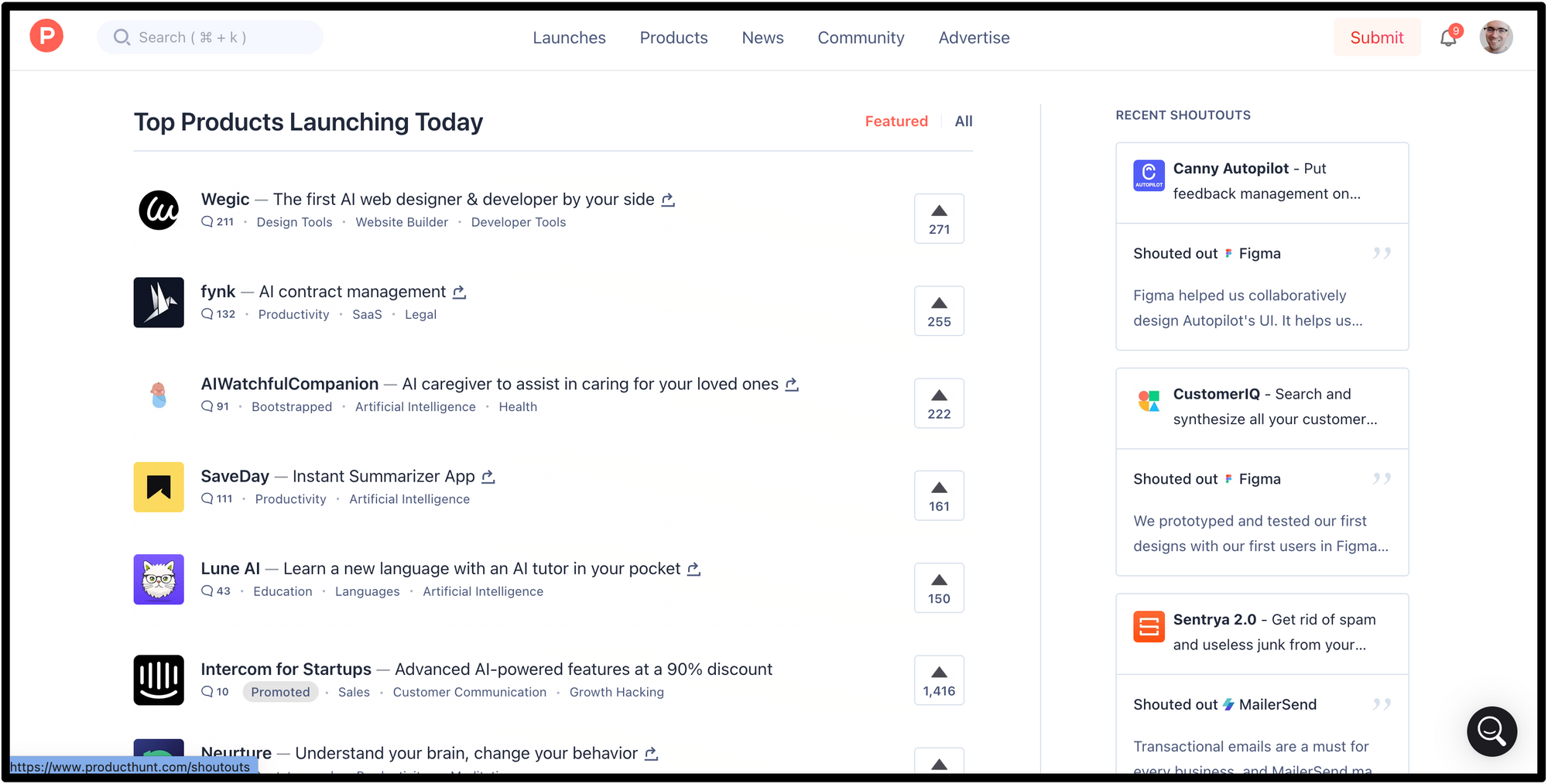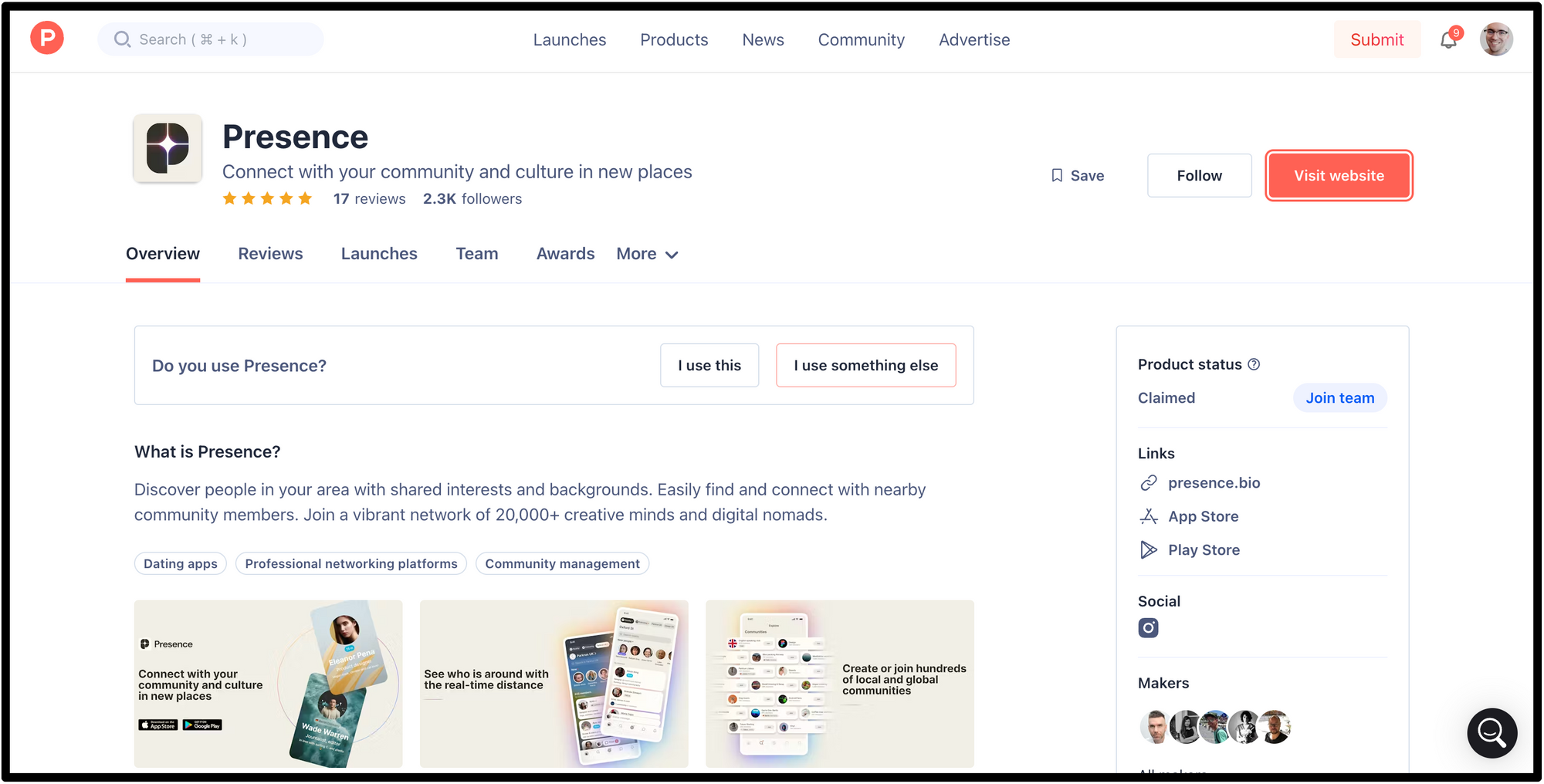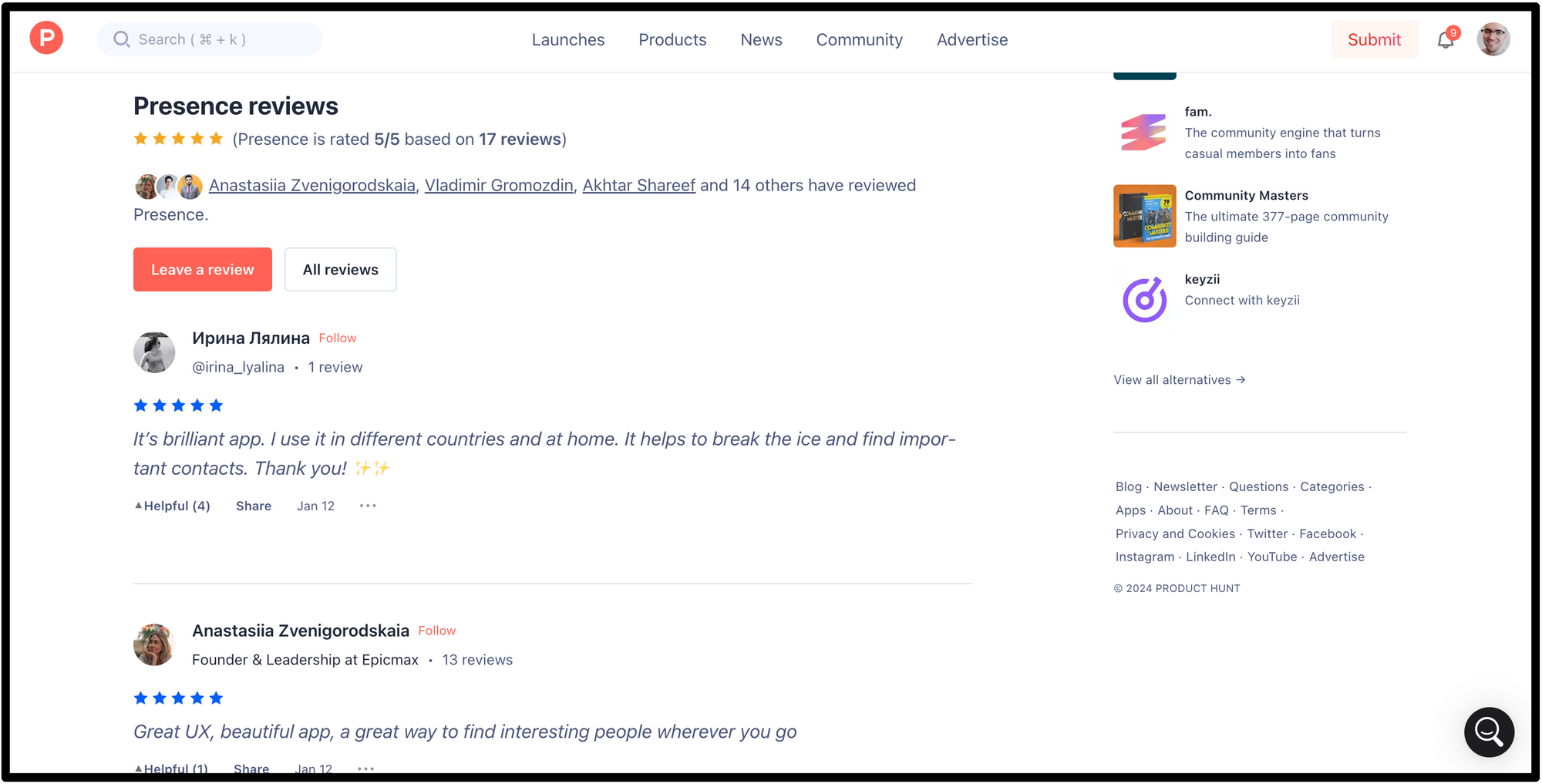This post is the first in what I expect to be an ongoing series of SWOT analyses. The goal of this series of SWOT analyses is not to dunk on any particular logo. One goal is to conduct a training exercise in looking strategically at a product, suite of products, or a company. Another goal is understand the particular products in question with an eye toward refining or leveraging them.
Let's get started.
What is Product Hunt?
Product Hunt is a platform that allows users to discover, share, and discuss new products, primarily in the tech and startup space. Entrepreneurs, developers, and product enthusiasts can showcase their latest creations and get feedback from an engaged audience. It's often used to launch new products or to gauge interest in ideas. In this sense, it is like Kickstarter, but there isn't a built-in way to invest.

Key Features and Benefits
- Product Launches: Users can submit new products, apps, websites, and tech-related innovations to be featured on the site.
- Upvoting System: The community can upvote products they like, similar to Reddit, which helps surface popular and trending products.
- Comments and Reviews: Users can comment on product listings, providing feedback, suggestions, and reviews that can be invaluable to creators.
- Daily Collections: Curated lists of products based on themes or categories, updated daily to highlight the latest trends and innovations.

- Events and AMA (Ask Me Anything) Sessions: Product Hunt occasionally hosts events and AMA sessions with notable figures in the tech industry, providing insights and fostering community interaction.
- Job Listings: A job board where companies can post openings and users can find job opportunities in the tech and startup sectors.
- For Creators: Product Hunt offers a platform to gain visibility, feedback, and initial user traction for new products. Successful launches can lead to increased exposure and user adoption.
- For Users: It provides a centralized place to discover innovative products, stay updated with the latest tech trends, and participate in a community of like-minded individuals.
- For Investors: Investors can use Product Hunt to identify promising startups and products early on, potentially leading to investment opportunities.

SWOT Analysis
Strengths
- Strong Community: Product Hunt has built a vibrant and engaged community of tech enthusiasts, entrepreneurs, and investors who actively contribute to discussions and product launches. They are disproportionately early adopters.
- Brand Recognition: Product Hunt is something of a brand-leader for its space in as much as it has a space.
- Wide Range of Products: Product Hunt features a wide variety of products across different categories, appealing to a broad audience.
Weaknesses
- Niche Market: The focus on tech products and startups may limit its appeal to a broader audience. Their audience is disproportionately a market of early adopters. They often do not represent the broader market.
- High Competition: Product Hunt has direct competition with near feature parity in BetaList. It also has competition in spaces where it plays, e.g., Wellfound for startup jobhunting or in broader spaces, e.g., Kickstarter for not-just-tech startups and launches.
- Dependence on User Contributions: The platform’s success relies heavily on user-generated content, which can be inconsistent in quality.
Opportunities
- Expansion into New Markets: Exploring new verticals beyond tech, such as consumer goods or services, could attract a wider audience. While this deepens direct competition with other launch platforms, it maybe uncovers openings in the market.
- Monetization through Micro-Investments: Creating a feature like Kickstarter's core value proposition. Allow very small players to make fairly small contributions to the success the launched products. Crowdsourcing angel investments could be a powerful disruption of the VC economy.
- Enhanced Analytics: Offering more detailed analytics and insights for product creators can help them better understand their audience and improve their offerings.
- Global Reach: Expanding its presence into international markets can tap into new user bases and growth opportunities.
Threats
- Platform Fatigue: Users might experience fatigue from the plethora of new products, leading to decreased engagement.
- Copycat Platforms: Competitors replicating Product Hunt’s model could erode its unique value proposition.
- Dependence on Tech Trends: Being heavily tied to tech trends means that any downturn in the tech industry could negatively affect the platform. This threat can be mitigated by playing in non-tech spaces from consumer retail to consumer financial products. Becoming a hub for micro-investment could also help Product Brief win in a tight VC economy.
- Regulatory Challenges: Anything remotely social and online has increasing issues and risks around compliance, user data, privacy, and content moderation. Some of these issues can be mitigated by moving slow and not breaking things. Other challenges can be mitigated with the use of AI LLMs to flag more reported or unreported content faster for fewer humans to review.
Final Thoughts
Product Hunt is a great platform. While developing a set of features to enable micro-investment will be costly and come with some risk, it may be Product Hunt's best shot at gaining access to more entrepreneurs, standing out in a thick field, and opening a new stream of revenue. It will add to the value of signals coming from users and give entrepreneurs and larger investors more certainty that a new launch can gain traction in the marketplace.
